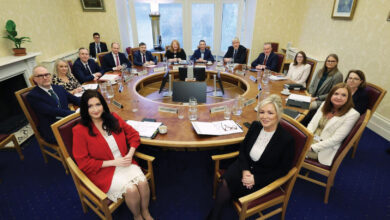The principle of protecting your source

NUJ General Secretary, Michelle Stanistreet, discusses the union’s support of Chris Mullin, at a time when honest reporting is at threat.
Journalism’s import and the challenges faced by journalists appeared in stark relief in Chris Mullin’s struggle to protect his sources. The investigative reporter, who went on to become an MP and government minister, uncovered the miscarriage of justice that jailed six men for the 1973 Birmingham pub bombings. Mullin faced the potential of jail for keeping his word.
In 1991 the Appeal Court ruled that, after 16 years incarceration, the Birmingham six’s convictions were unsafe. Then Home Secretary Kenneth Baker told the House of Commons: “(Mullin) wrote his book and campaigned. He has every right to feel proud that the convictions have been quashed.”
West Midlands Police (WMP) must account for their own actions, but England’s second largest force certainly has questions to answer. They framed the six men using coercive techniques. They ignored Mullin’s evidence that others were to blame, and for decades they left the bombings uninvestigated.
Mullin’s tack was different. To prove the six’s innocence, he tracked down the real perpetrators. Promising IRA members he would never reveal confidential sources, he found the bomb planter. Remarkably, he extracted a confession, sufficiently detailed that its veracity is generally accepted.
WMP has been chided into action by the understandably distraught relatives of the 21 bombing casualties. Police have interviewed the suspect, several times. Now resident in Northern Ireland, he was, however, unforthcoming. After consistently failing to mount a credible prosecutable investigation, they improbably claimed that unredacted copies of Mullin’s 30 year-old interview notes were key to achieving justice.
Mullin resisted the application for a Production Order sought under the Terrorism Act. He had the support of the NUJ, the union he has been a member of for 50 years. After a hearing at the Old Bailey in February 2022, in March, a court backed Mullin’s failure to comply.
It is clear that Mullin could not comply with an order to hand over his journalistic material, but there existed a troubling possibility that for the second time, WMP showed a preparedness to send the wrong man to jail.
Disturbingly the Terrorism Act is but one of many legal challenges currently frustrating honest reporting. February’s Bloomberg v ZXC judgement outlaws the reporting of individuals being investigated or arrested. Julian Assange’s extradition could place at risk any journalist who offends the US Government, and proposed reforms to the Official Secrets Act threatens to treat journalists like foreign spies.
In all of this, the NUJ will always stand up for journalists and journalism, but we need our allies in civil society more than ever.





